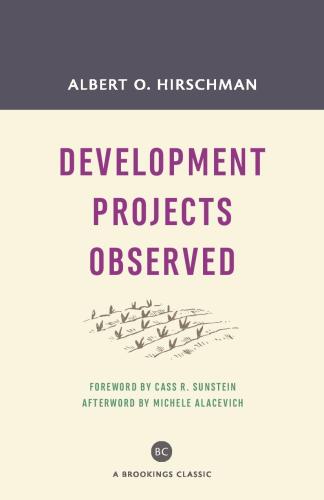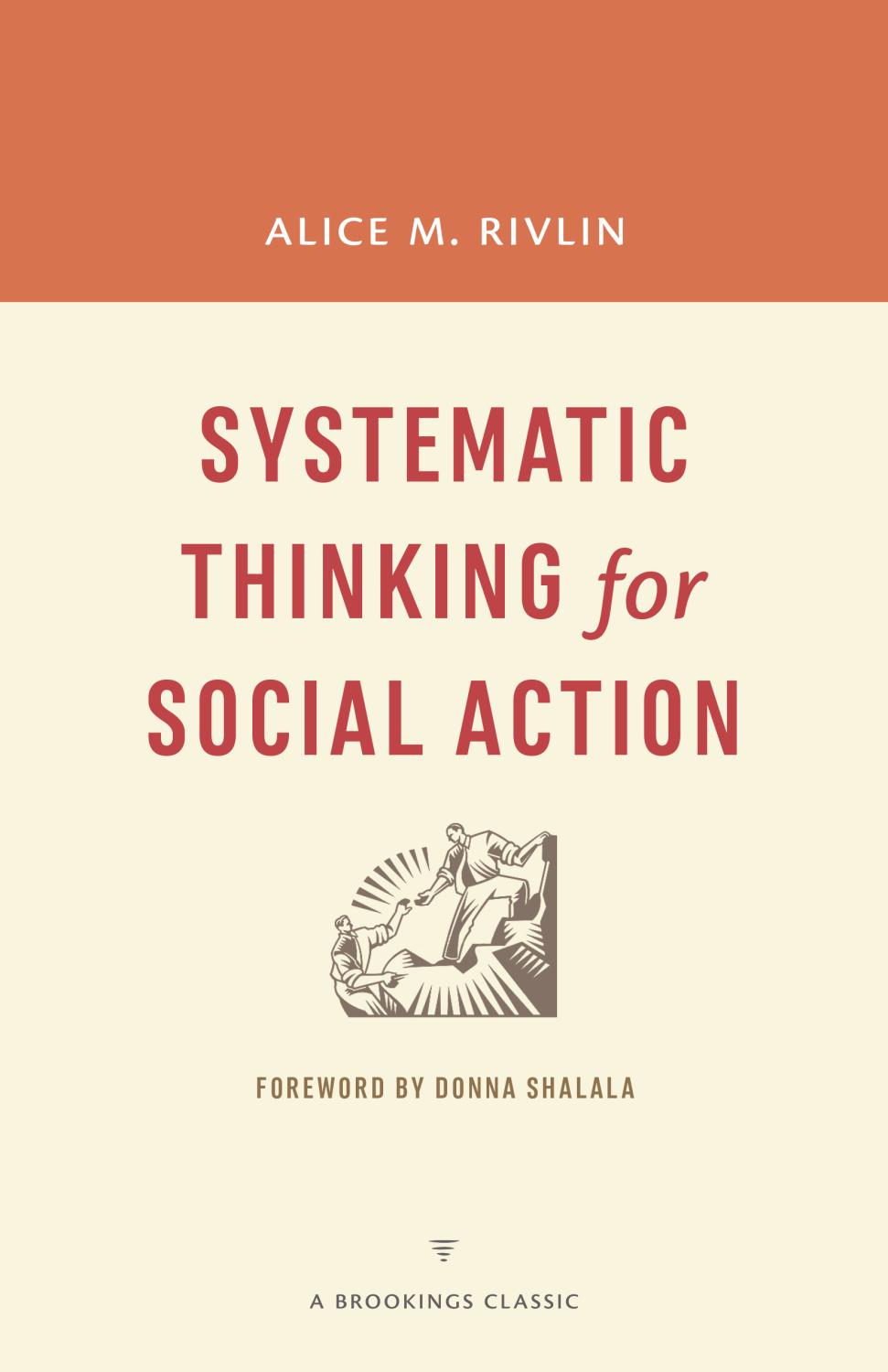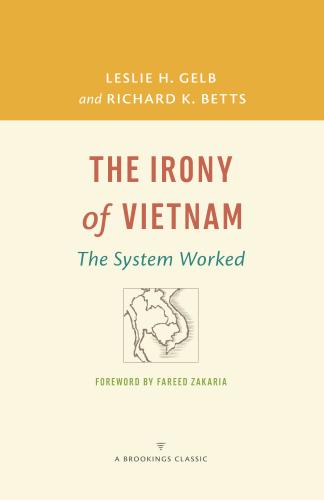


Book
In January 1970 Alice M. Rivlin spoke to an audience at the University of California-Berkeley. The topic was developing a more rational approach to decisionmaking in government. If digital video,...
In January 1970 Alice M. Rivlin spoke to an audience at the University of California–Berkeley. The topic was developing a more rational approach to decision-making in government. If digital video, YouTube, and TED Talks had been inventions of the 1960s, Rivlin’s talk would have been a viral hit. As it was, the resulting book, Systematic Thinking for Social Action, spent years on the Brookings Press bestseller list. It is a very personal and conversational volume about the dawn of new ways of thinking about government.
As a deputy assistant secretary for program coordination, and later as assistant secretary for planning and evaluation, at the Department of Health, Education and Welfare from 1966 to 1969, Rivlin was an early advocate of systems analysis, which had been introduced by Robert McNamara at the Department of Defense as PPBS (planning-programming-budgeting-system).
While Rivlin brushes aside the jargon, she digs into the substance of systematic analysis and a “quiet revolution in government.” In an evaluation of the evaluators, she issues mixed grades, pointing out where analysts had been helpful in finding solutions and where—because of inadequate data or methods—they had been no help at all.
Systematic Thinking for Social Action offers important insights for anyone interested in working to find the smartest ways to allocate scarce funds to promote the maximum well-being of all citizens.
This reissue is a Brookings Classic, a series of republished books for readers to revisit or discover previous, notable works by the Brookings Institution Press.
Related Books

Albert O. Hirschman Cass R. Sunstein Michele Alacevich
December 10, 2014

Arthur M. Okun Lawrence H. Summers
April 30, 2015

Herbert Kaufman Philip K. Howard
June 8, 2015

Leslie H. Gelb, Richard K. Betts Fareed Zakaria
May 31, 2016
Authors

Foreword by
Alice M. Rivlin is a senior fellow in Economic Studies at Brooking, a visiting professor at the Public Policy Institute of Georgetown University, and the director of the Engelberg Center for Health Care Reform. She has served on the President's Debt Commission, was founding director of the Congressional Budget Office, director of the Office of Management and Budget, and a Federal Reserve vice chair. She is an expert on fiscal and monetary policy.